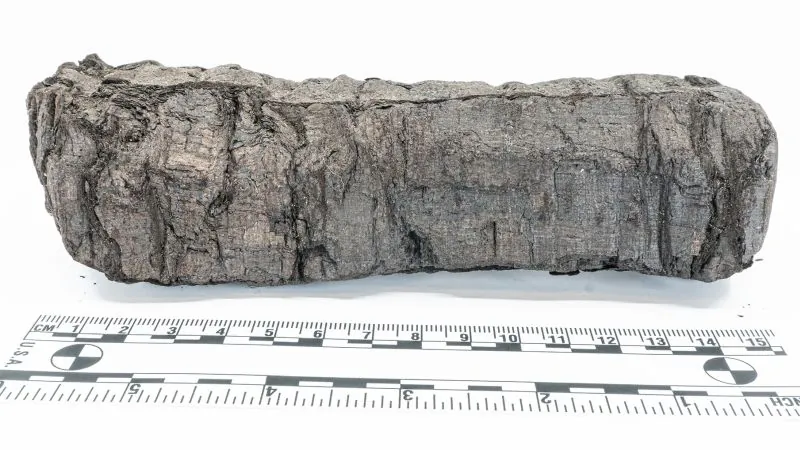
2024: Four Groundbreaking Revelations That AI Has Unveiled!
2024-12-21
Author: Chun
2024: Four Groundbreaking Revelations That AI Has Unveiled!
In an era where artificial intelligence (AI) is rapidly transforming our understanding of the universe, 2024 has emerged as a landmark year for revolutionary discoveries. From unlocking ancient civilizations' secrets to decoding the language of marine life, AI has opened new frontiers in scientific research. Here are four astonishing ways AI has revealed the unexpected this year.
1. Unveiling Ancient Scrolls from Herculaneum
Despite being charred in the eruption of Mount Vesuvius in AD 79, the Herculaneum scrolls are showing signs of life thanks to sophisticated AI applications. Researchers utilized high-resolution X-rays and advanced AI techniques to decode more than 2,000 unreadable characters from these fragile artifacts. The ambitious aim is to decipher 90% of four scrolls by the end of 2024. Brent Seales, an expert in computer science, emphasized the prowess of AI as a "superpower" enabling researchers to illuminate hidden textual treasures previously lost to time.
2. Decoding Whalespeak: A Breakthrough in Animal Communication
An exciting breakthrough in marine biology occurred when researchers applied machine learning to analyze the complex communication of sperm whales. By examining nearly 9,000 recorded click sequences known as codas, scientists unearthed intricate patterns and potential meanings in whale communication. This analysis could be a stepping stone toward human-whale interaction, enabling us to finally bridge the communication gap with these intelligent beings. The potential implications for understanding marine ecosystems are immense!
3. Revolutionizing Archaeological Discoveries in the Nazca Desert
In an astonishing stride for archaeology, AI has significantly enhanced the search for ancient geoglyphs in Peru's Nazca Desert. A team of researchers trained an AI model to detect geoglyphs from high-resolution imagery of the desert. This breakthrough led to the identification of 1,309 high-potential archaeological sites—nearly doubling the known geoglyphs. While the AI suggested about 47,000 possible sites, it highlights the model's potential to facilitate discoveries in challenging terrains that traditional methods often overlook.
4. Decoding the Building Blocks of Life with AI
In the realm of biochemistry, the AlphaFold Protein Structure Database has drastically altered how researchers approach protein structures. By predicting the shape of nearly 200 million proteins from their amino acid sequences, AlphaFold has become an invaluable resource in fundamental biology and medicine. This tool dramatically accelerates the pace of research and aims to help scientists unravel the complexities of life at the molecular level. Yet, as with all technologies, it has its limitations, especially concerning mutations that might lead to diseases like cancer.
The Broader Implications of AI in Research
These remarkable advances illustrate just a fraction of how AI is reshaping our scientific landscape. As peer-reviewed papers incorporating AI methodologies surge, more than half of surveyed scientists acknowledge AI as "very important" for the future of research. However, concerns regarding the transparency and reliability of AI systems also linger, prompting discussions about the ethical implications of deploying such powerful tools without proper oversight.
As we move deeper into the age of AI, we can't help but wonder: What other secrets will this technology unveil? Will it become our greatest ally in navigating the unknown territories of science and discovery? Only time will tell, but the possibilities are undoubtedly endless!

 Brasil (PT)
Brasil (PT)
 Canada (EN)
Canada (EN)
 Chile (ES)
Chile (ES)
 España (ES)
España (ES)
 France (FR)
France (FR)
 Hong Kong (EN)
Hong Kong (EN)
 Italia (IT)
Italia (IT)
 日本 (JA)
日本 (JA)
 Magyarország (HU)
Magyarország (HU)
 Norge (NO)
Norge (NO)
 Polska (PL)
Polska (PL)
 Schweiz (DE)
Schweiz (DE)
 Singapore (EN)
Singapore (EN)
 Sverige (SV)
Sverige (SV)
 Suomi (FI)
Suomi (FI)
 Türkiye (TR)
Türkiye (TR)